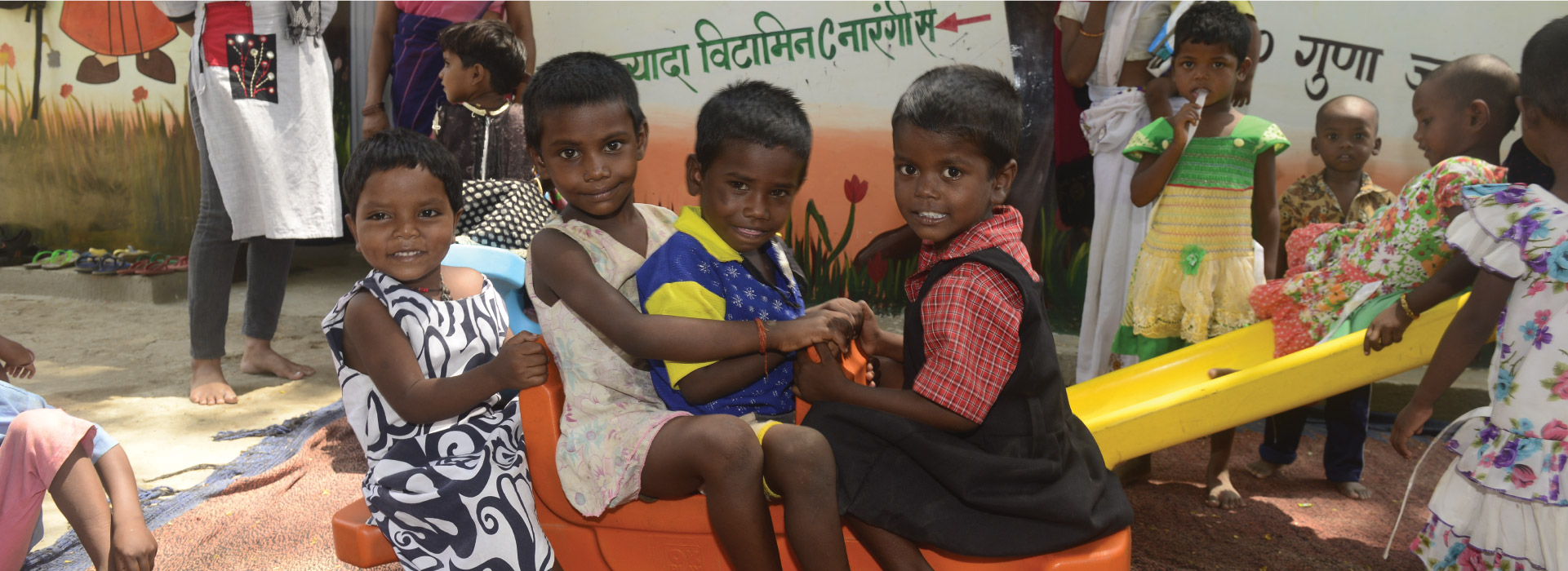
Education is one of the most powerful and proven vehicles for sustainable development. Education is the key for developing the economy and transforming an individual’s life. Thus, ensuring inclusive and quality education is a focus area under ‘Parivartan’. The Bank strives to promote a conducive learning environment in schools.
The Bank’s efforts in the area of education include teacher training, scholarships and career guidance. It also includes provision of infrastructure support, such as building toilets in schools and improving classrooms. Teacher training provides teachers with alternative teaching pedagogy, improves their soft skills and promotes innovation. The programs also focus on providing quality education through remedial classes, learning camps, special scholarships etc. This programme is in line with the Sarva Shiksha Abhiyan of the Government of India and SDG 4 (Promoting Quality Education).
Three flagship programmes of the Bank under the theme of Education are
- A. Teach the Teacher
- B. Project Disha
- C. Educational Crisis Scholarship Support (ECSS)
A. Teach the Teacher
The ZIIEI or the ‘Teaching the Teacher’ programme (3T) seeks to transform education in government schools across India. It is a unique programme which is committed to improving the skills of teachers, which in turn, benefits the students. Under 3T, more than 15 lakh teachers across 21 states/union territories have been trained and their ideas have been implemented in schools to improve the quality of education. This programme has potentially benefited more than 1.6 crore students indirectly and is being executed jointly with a leading non-governmental organisation.
Zero Investment Innovations for Education Initiatives (ZIIEI), is a mass scale teacher outreach initiative started by the Bank. ZIIEI aims to find ‘the scattered, isolated and unrecognized, but effective solutions’ created by teachers at grassroots and systematically scales them up to millions of schools through the 'Navachar Pustika' or Book of Ideas, which is a compilation of the best ideas selected and recognized by a panel. Till date, Navachar Pustikas have been distributed across 18 states. Subsequently, close to 1.87+ lakh schools have implemented innovative ideas.
Along with this transformational journey, the concept of 'Innovative Pathshaal a' was also introduced, where each chapter of the state curriculum is mapped to innovative ideas, that could be used to engage and teach students. The program has been completed in UP and NCERT curriculum (primary education), the remaining states will subsequently be added. This curriculum is further updated on an online app which can be easily accessed by teachers.
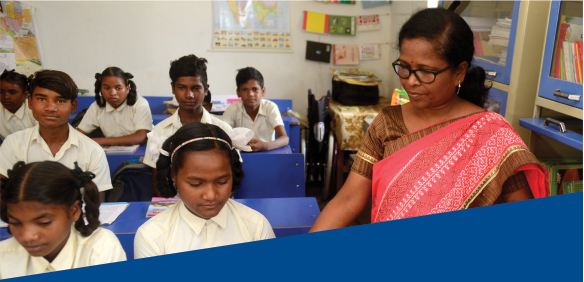
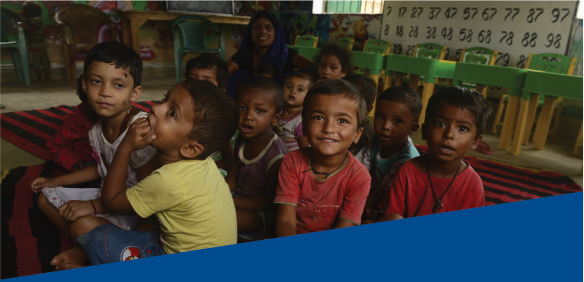
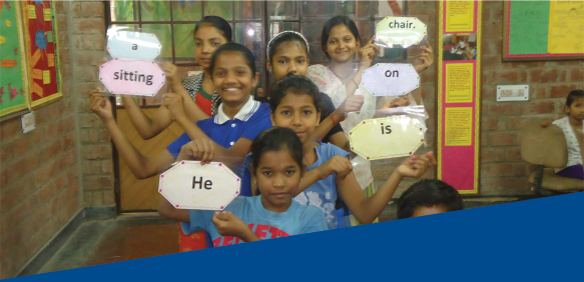
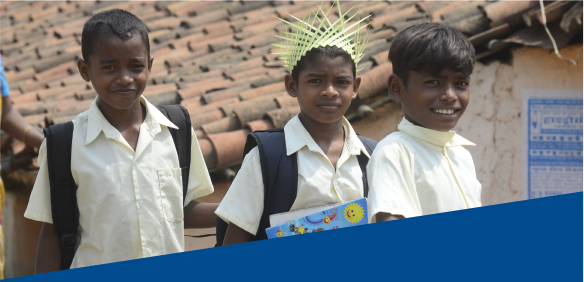
B. Project Disha
Project Disha is yet another initiative that has helped achieve higher levels in numeracy, reading and science in the remote and rural areas of India. Project Disha was initiated in 2016 and is currently spread across four states in India; namely Chhattisgarh, Maharashtra, Madhya Pradesh and Rajasthan. It works with the children in government schools. The project has been able to provide quality education to about 18,000 children. It has also built 110 community libraries and set-up 55 science laboratories.
Outcome of the project
Higher learning levels
in numeracy, reading
and science
Reduction in drop-outs
and class progression
Completion of Formal
Education
Young scholar - Shamshad Qureshi
Shamshad Qureshi displayed a very low level of interest in academics and had poor attendance in school, his teachers feared he would drop out altogether. With the help of Project Disha and innovative teaching methods and activity-based teaching the interest of Shamshad’s was reigniting. His motivation to attend school and thereby his attendance improved beyond expectation
C. Educational Crisis Scholarship Support (ECSS)
HDFC Bank under its ECSS programme, educates children from economically and socially disadvantaged groups who are most at risk of dropping out of school due to sudden financial crisis. In FY 2018-19, 541 students were provided financial support through the programme.
The ECSS programme covers students in middle school, high school, as well as scholars pursuing undergraduate and postgraduate education. This assistance helps students navigate difficult situations without affecting their education.
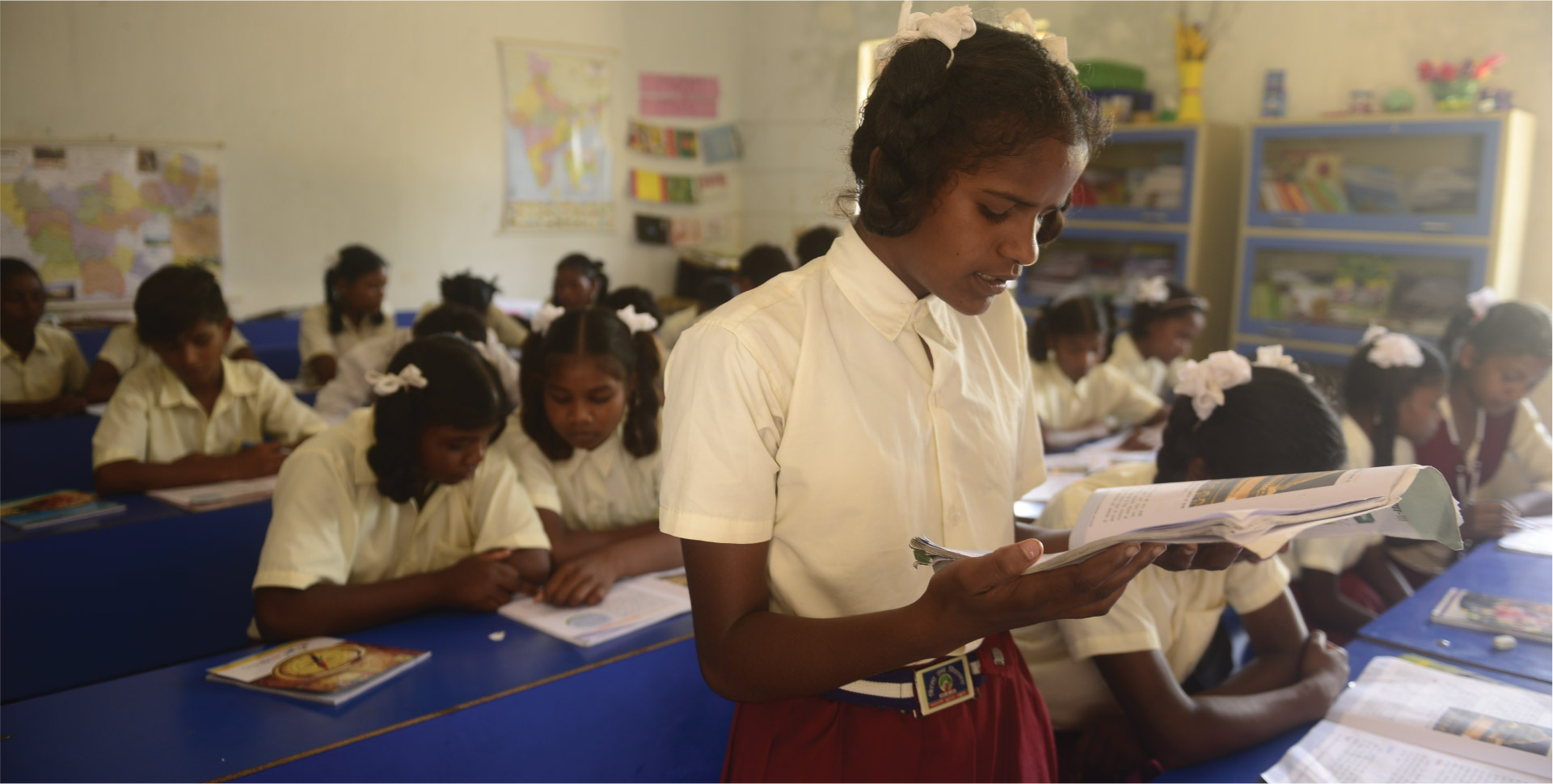
For any queries or questions
regarding the report or its contents,
contact:
Nusrat Pathan
Head, Sustainability & Corporate Social Responsibility
HDFC Bank Limited
Nusrat.Pathan@hdfcbank.com
All Rights Reserved.
